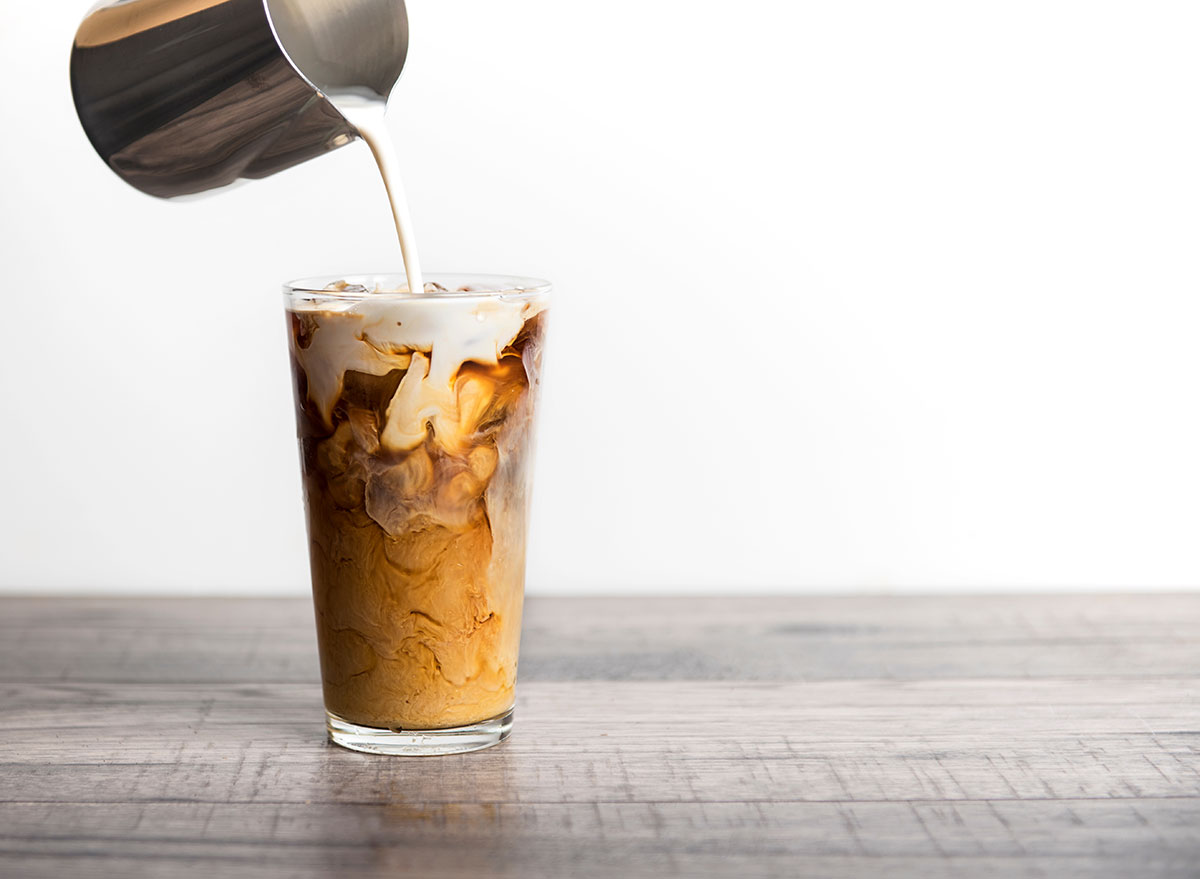The #1 Warning Sign You’re Drinking Too Much Coffee, According to Science

We’re a country that runs on coffee. In fact, surveys show that 65 percent of Americans drink coffee on a regular basis. While many of us will indulge in a single cup of coffee, a staggering 68% of Americans surveyed in a recent Statista survey reported drinking more than 2 cups of coffee a day—some having more than 11 cups! Between 2-3 cups of coffee every day was the most commonly-reported answer, with 44 percent of U.S. adults drinking this much java on a regular basis.
These results are in line with many estimates which suggest that adults consume an average of 180-190 milligrams of caffeine per day, or the equivalent of two to three cups of coffee; however, some studies have found that young adults may average between 250-300 milligrams. (Related: Coffee Habits That Are Shortening Your Life, According to Science.)
If you’re in this crew of coffee drinkers, consider yourself safe. Experts believe that moderate daily caffeine intake of up to 400 milligrams per day is safe. In fact, drinking coffee in moderation has some amazing health benefits, such as increased energy levels and decreased risk of chronic health issues such as type 2 diabetes, Alzheimer’s, and certain types of cancer.
However, once you consume over 400 milligrams of caffeine per day, you may start to experience some negative symptoms.
What is a sign to look out for that tells you you’re drinking too much coffee?
Among the dangerous side effects of drinking coffee are the risk of high blood pressure, headaches, and disrupted sleep quality.
How do you know if you’re drinking too much coffee? You don’t necessarily have to count your drinks (although that would help)—it’s possible to tell whether you’re consuming too much of the caffeinated beverage by reflecting on your mental state.
A recent study pinpointed five physical and psychological symptoms that were most closely linked to drinking too much caffeine. The symptom most strongly associated with excess caffeine intake was feeling trapped or caught.
A 2020 study published in the journal Foods, sought to determine how the amount of caffeine people consume is related to measures of physical and mental health.
The researchers surveyed 727 university students and asked them how much caffeine they drank per day. They also asked participants to report their mental health status, as measured with the Hopkins Symptom Checklist: a self‐report symptom inventory widely used to screen for psychological distress, anxiety, and depression.
The researchers found that participants who consumed too much caffeine (over 400 milligrams of caffeine per day) showed a statistically significant difference for five out of 25 symptoms: feelings of worthlessness, worrying too much about things, spells of terror or panic, headaches, and—the symptom most strongly associated with excess caffeine intake—feeling trapped or caught.
So while there is a physical sign that you’re drinking too much coffee—headaches—you’re more likely to be able to tell if you’re drinking too much coffee by assessing your mental state.
Why does coffee make you feel anxious?
The caffeine in coffee is a stimulant. It acts by blocking a brain chemical that makes you feel tired, while also triggering the release of energy-stimulating adrenalin, according to a review in the Journal of Neurochemistry. Adrenalin will make your heart beat faster, your body temperature rise, and your breathing rate to increase. So while this helps you to feel more attentive and focused, it can also mimic anxiety.
That’s why most of the symptoms participants reported are related to anxiety.
It’s important to note that these symptoms are self-reported, and the researchers could not conclude that caffeine was the cause of these feelings; however, they were more strongly associated with caffeine intake than other anxious feelings were. Because there are other causes of experiencing these thoughts and feelings, such as generalized anxiety disorders, feeling trapped or caught or worrying may not necessarily mean you’re drinking too much coffee. If you’re drinking more than 4 cups of coffee a day and happen to have these feelings, it may be a sign you should cut back on your morning brew.
Consider reducing your caffeine intake and see if your mood changes. For help cutting back, you can consider substituting some of your cups of coffee for tea, as tea has less than half the caffeine as a cup of coffee does. Plus, you can benefit from the 12 Amazing Side Effects of Drinking Tea Every Day.
For more healthy eating news, make sure to sign up for our newsletter!








